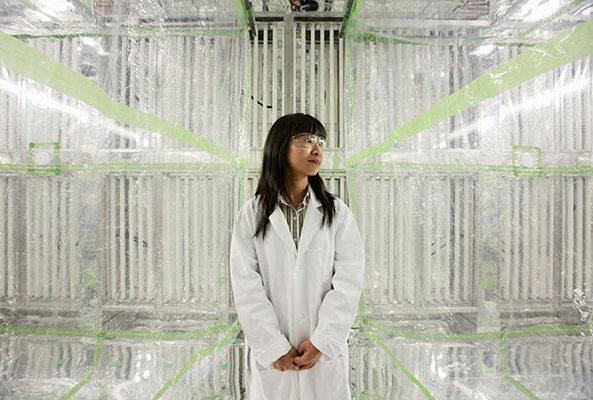
The New Investigator Award is named for Professor Walter A. Rosenblith (1913-2002), who served as the first Chair of HEI's Research Committee (from 1980 to 1989) and as a member of the HEI Board of Directors from 1990 to 1996. Professor Rosenblith’s vision of science and standard of excellence enabled HEI to quickly develop a strong scientific program. At his urging, HEI developed a program that not only funds research that would contribute needed scientific information for regulation, but also research to strengthen the fundamental science related to environmental issues.
A member of the Georgia Tech faculty since 2011, Ng is an assistant professor in the School of Chemical & Biomolecular Engineering and School of Earth & Atmospheric Sciences. Dr. Ng is also a recent recipient of a U.S. Environmental Protection Agency Early Career Award.
Ng’s research focuses on the fundamental understanding of the chemical mechanisms of secondary organic aerosol formation and composition. Secondary organic aerosols, formed from oxidations of compounds in the atmosphere, constitute a substantial fraction of fine PM in the atmosphere and have important impacts on climate, visibility, and human health. Dr. Ng’s group uses a synergistic approach in studying aerosols by performing both laboratory chamber experiments and ambient field measurements using advanced aerosol mass spectrometry techniques.
"I'm very excited to receive this award which will allow me to apply my research on aerosols to examine their health-related properties,” said Ng. "The award is intended to bring new investigators from outside the health community into new areas of research in order to offer new perspectives and I'm excited about that opportunity."
One of the most important mechanisms that has been put forth to explain the adverse health effects of PM is oxidative stress through the generation of reactive oxygen species (ROS). Dr. Ng’s research for the new investigator award will involve evaluating the oxidative potential of PM using both chemical and cellular assays. The study builds on the exceptional capability of laboratory chambers for studying aerosol formation under a well-controlled environment. Dr. Ng and her team will generate different pollutant mixtures in the Georgia Tech Environmental Chamber facility. Georgia Tech and Emory University have recently been awarded an EPA health center (Southeastern Center for Air Pollution & Epidemiology, SCAPE) to study health effects of air pollution. This proposed project takes advantage of the instruments developed and the extensive ambient data that would be generated from SCAPE.
Results from this project will directly address one of the strategic priorities of HEI by providing insights into the further understanding of air pollutant toxicity that may be related to climate change agents. It will bring a better understanding of the co-benefits and dis-benefits of alternative pollution control strategies and will advance the ability to accurately assess PM health effects by extending scientific knowledge beyond primary emissions and examining the impact of secondary organic aerosols.
Ng is the second Georgia Tech faculty member to receive the award, the first being BME's Thomas Barker in 2008.
HEI is a nonprofit corporation chartered in 1980 as an independent research organization to provide high-quality, impartial, and relevant science on the health effects of air pollution.
